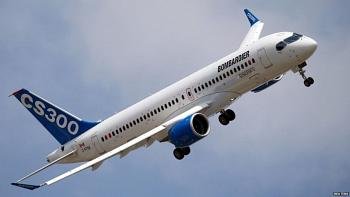Trade Dispute Between Canada And US Deepens Over Bombardier
The trade dispute between the US and Canada took a further negative twist when the former announced an 80 per cent export duty on the export of planes built by Bombardier. This followed a complaint by Boeing that Bombardier (owned by Canada) with more than 4,000 employees in Belfast is selling the planes in America below cost.
The U.S. Commerce Department made the announcement of the increase in export duty on Friday. This adds to the nearly 220 per cent duties announced last month by Commerce. This decision is a victory for the rival, U.S.-owned Boeing Co.
The U.S. says that the Montreal-based Bombardier is unfairly using government subsidies to sell jets at artificially low prices in the United States thereby putting the nation’s aircraft manufacturers at an undue disadvantage. Commenting on the topic, the Commerce Secretary, Wilbur Ross said Bombardier had defaulted in providing the requested information.
“The anti-dumping duty law provides US businesses and workers with a transparent, quasi-judicial, and internationally accepted mechanism to seek relief from the market-distorting effects cause by injurious dumping of imports into the United States.” Ross further stressed that “The United States is committed to free, fair and reciprocal trade with Canada, but this is not our idea of a properly functioning trading relationship.”
Boeing had made several claims against Bombardier including the charge that Bombardier sold Delta Air Lines 75 CS100 aircraft last year less than it cost to build. Reacting to the sanctions and accusations by Boeing against the Canada-owned Bombardier, Canada’s foreign affairs minister, Chrystia Freeland, said,
“These anti-dumping duties on Bombardier’s C Series aircraft unfairly target Canada’s highly innovative aerospace sector and its more than 200,000 workers, and put at risk the almost 23,000 U.S. jobs that depend on Bombardier and its suppliers.” He further stated that “Boeing is manipulating the U.S. trade remedy system to prevent Bombardier’s new aircraft, the C Series, from entering the U.S. market.
Bombardier still has the option to appeal any sanctions to a U.S. court or to a dispute-resolution panel created under the North American Free Trade Agreement. The proposed duties will only take effect from early next year if affirmed by the US International Trade Commission (ITC). Boeing will need to provide proof that shows it was harmed by Bombardier’s sales.
Bombardier is confident that the ITC will discover that Boeing had not been harmed referring to the decision by the Department of Commerce as a case of “egregious overreach”. It can be recalled that last month, Theresa May, the UK prime minister lobbied the US president, Donald Trump over the unfair state subsidies by UK and Canada complaint by Boeing. She also discussed the issue with the Canadian Prime Minister, Justin Trudeau.
Canada and Britain have fired back threatening to boycott the purchase of Boeing military equipment. Last month’s duties and the current 80 per cent duties put the total duties at 300 per cent. This combined duty is enough to keep the C Series out of the market.
Do you see an amicable resolution to this dispute or an ignition to further Canada and United States dispute? Leave your opinion in the comment box.
Comments
There are 0 comments on this post













